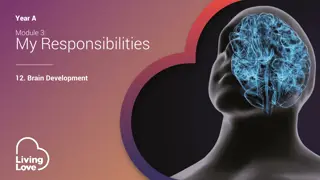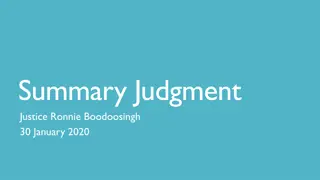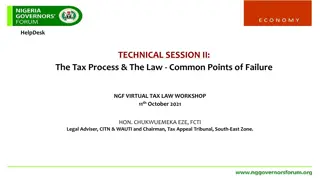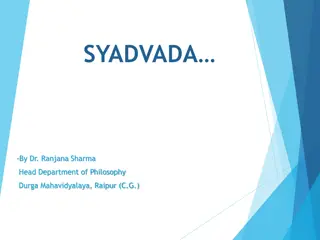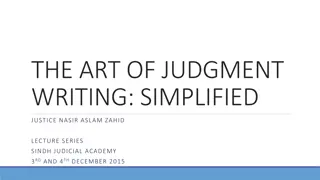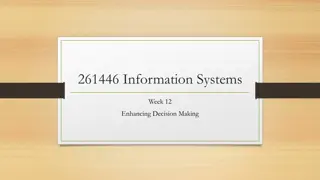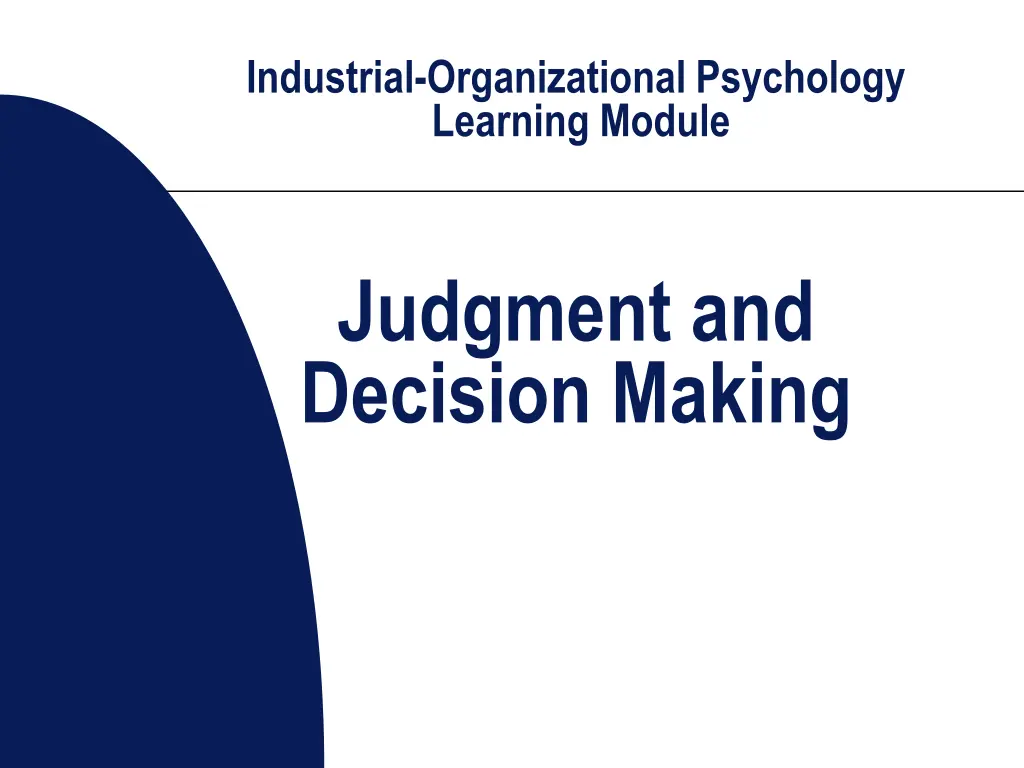
Understanding Decision-Making in Organizational Psychology
Explore the role of Industrial-Organizational Psychology in judgment and decision-making processes within workplaces. Learn about common biases, how psychologists help avoid them, and practical exercises in creating unbiased interview questions. Gain insights into handling complex problems, team dynamics, and improving decision-making skills.
Download Presentation

Please find below an Image/Link to download the presentation.
The content on the website is provided AS IS for your information and personal use only. It may not be sold, licensed, or shared on other websites without obtaining consent from the author. If you encounter any issues during the download, it is possible that the publisher has removed the file from their server.
You are allowed to download the files provided on this website for personal or commercial use, subject to the condition that they are used lawfully. All files are the property of their respective owners.
The content on the website is provided AS IS for your information and personal use only. It may not be sold, licensed, or shared on other websites without obtaining consent from the author.
E N D
Presentation Transcript
Industrial-Organizational Psychology Learning Module Judgment and Decision Making
Objectives: Understand the kinds of decisions made within organizations Recognize common judgment biases Know how I/O psychologists help people avoid biases 5/28/2025
What kinds of decisions do people make in the workplace? Handling complex problems individually Pilot flight diversion decisions Handling complex problems as a team Surgical Team Focusing effort 9-1-1 Emergency Dispatcher Judging people Rating employee performance on the job Using interviews to choose job applicants 5/28/2025
Biases in Decision Making Halo errors Negative information Stereotypes Heuristics-mental shortcuts confirmation bias 5/28/2025
How do I/O psychologists help people avoid bias during interviews? Develop clear criteria through: job analysis relevant structured and situational interview questions Rater training practice feedback 5/28/2025
Example interview question Situational question for restaurant crew: Suppose you saw a sandwich order in the window with wilted lettuce, in the middle of a huge rush. What would you do? Potential answers and their rating: (+) would discard the wilted sandwich (0) would send sandwich to kitchen to have the lettuce replaced (-) would serve the sandwich as is 5/28/2025
Exercise: Create structured and situational interview questions Choose a job that you are fairly knowledgeable about. Describe a common stereotype that someone might use when judging a person for this job. Develop one question that you could ask that would eliminate your need to make assumptions based on the stereotype. Also identify examples of good or poor responses. 5/28/2025
Exercise:Create structured and situational interview questions Now develop a scenario that someone in this position might experience. Describe it and ask what would you do in this situation? Again, provide examples of good and poor responses. Find someone in the room to interview and evaluate their answers based on the examples you have generated. 5/28/2025
Conclusion Decisions permeate the workplace Humans often rely on shortcuts and biases, especially when information is incomplete, that can lead to mistakes or errors I/O Psychologists have devised a variety of techniques to help humans accurately collect and utilize information 5/28/2025
Resources Baron, Jonathan, (Ed); Brown, Rex V., (Ed); et al Teaching decision making to adolescents. p. 161-184. Lawrence Erlbaum Associates, Inc, Hillsdale, NJ, USA. Peden, Blaine F.; Keniston, Allen H.; Burke, David T. Learning about individual and collective decisions: All for one and none for all. Teaching of Psychology. Vol 17(4), Dec 1990, 235-238. Larsen, Janet D. Prisoner's dilemma as a model for understanding decisions. Teaching of Psychology. Vol 14(4), Dec 1987, 230-231. Goethals, George R.; Demorest, Amy P. The risky shift is a sure bet. Teaching of Psychology. Vol 6(3), Oct 1979, 177-179. 5/28/2025

